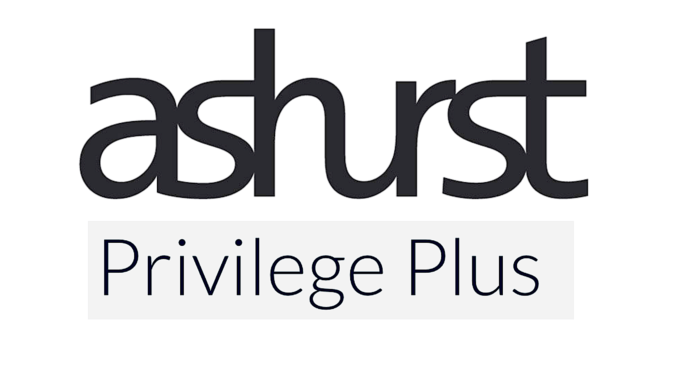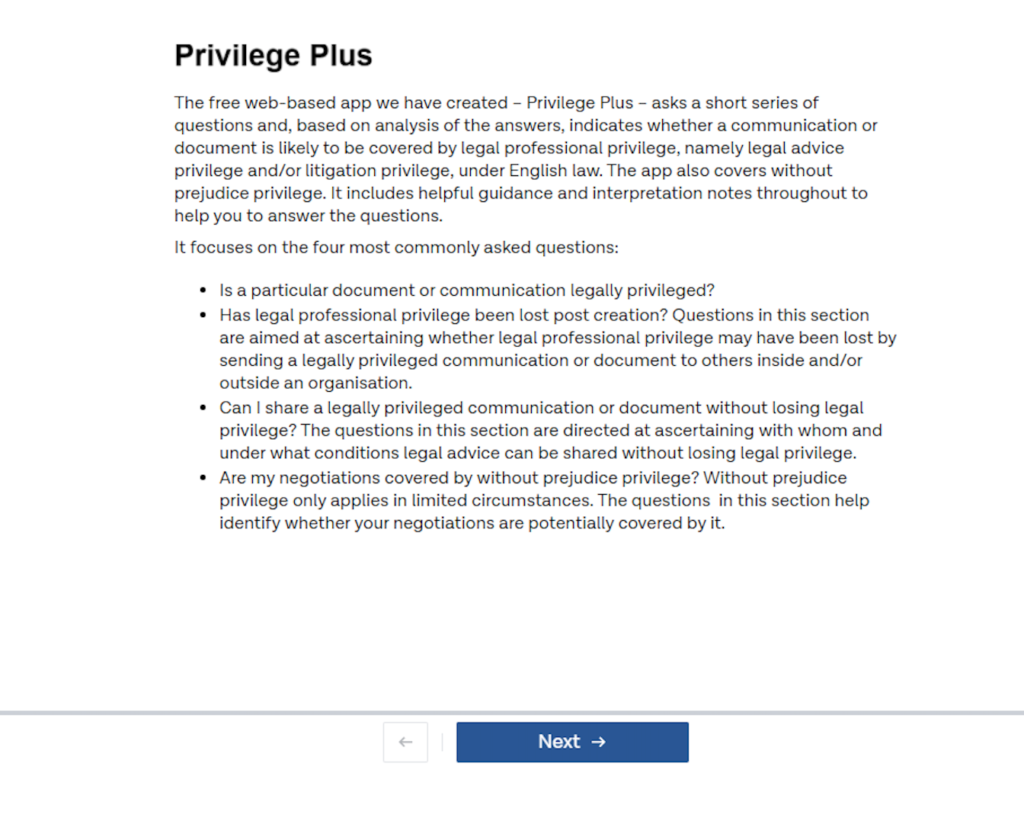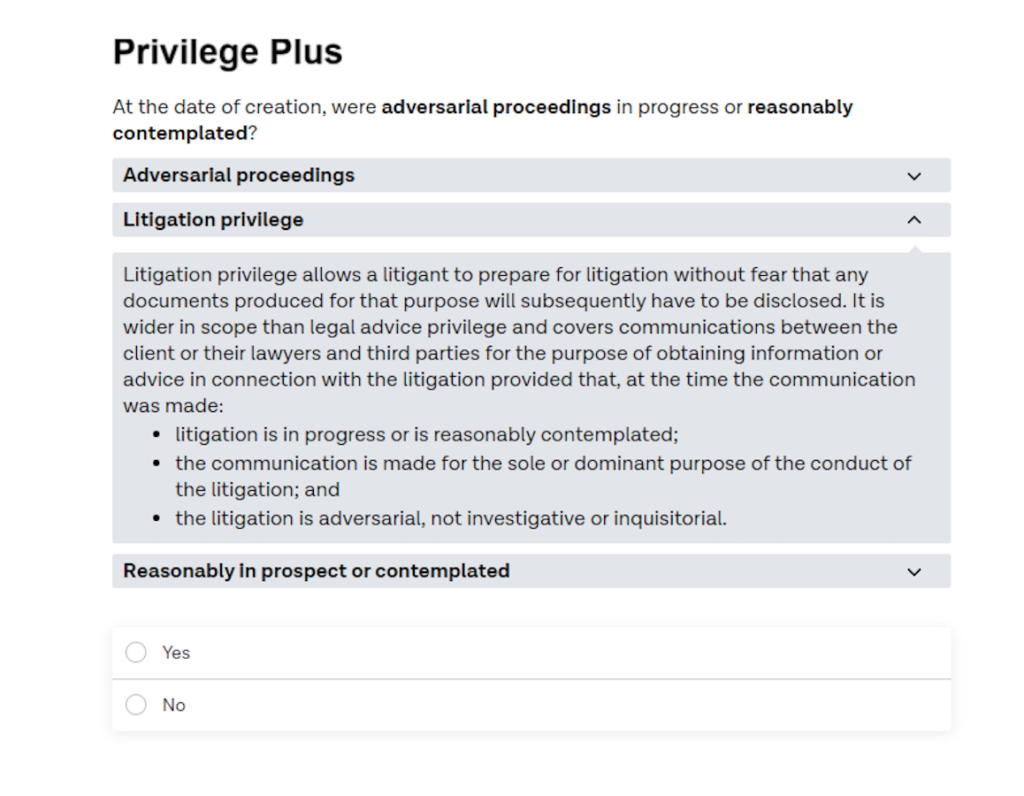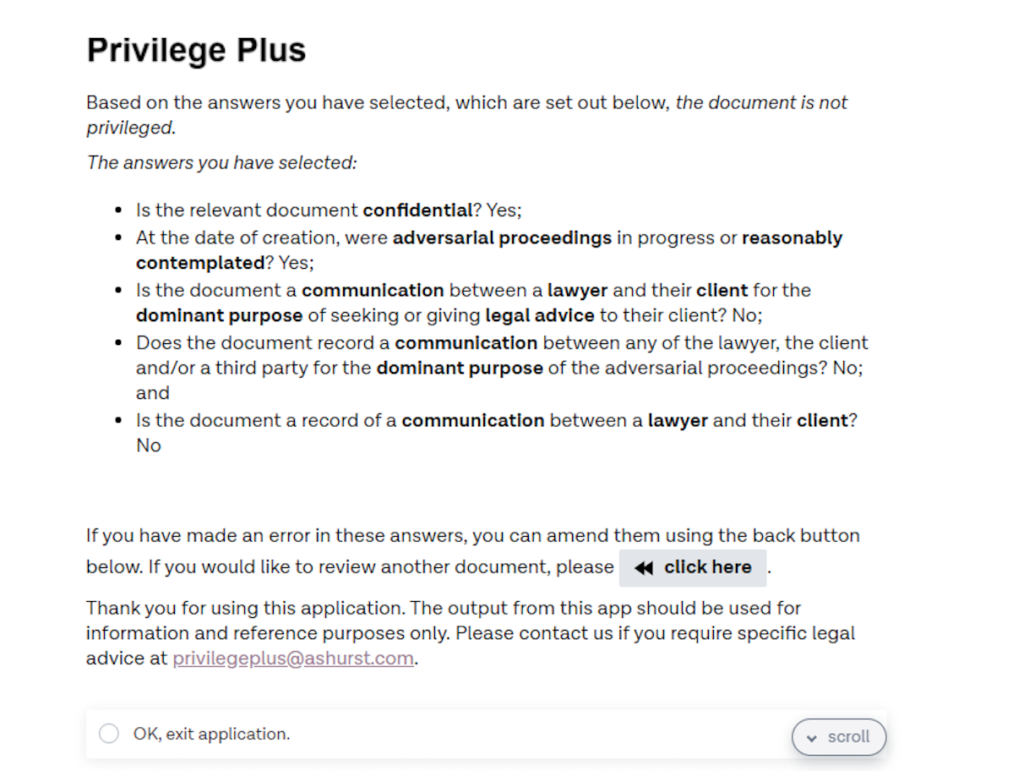
Ashurst has launched a new professional privilege tool, which was built using no-code automation provider BRYTER and operates as an expert system. It’s another example of a law firm seeing a clear use case for an automated application that will help the clients and the firm – and then building it themselves.
In September Herbert Smith Freehills also launched a legal privilege application, in their case using Neota Logic. Ashurst’s tool is named Privilege Plus and can be found here.
Ashurst has also developed other digital tools to help clients, such as one to assist with the ESG needs of inhouse counsel.
But why the interest in legal privilege? Why is this the focus of at least two major law firms now in terms of building their own client-facing tools?
Chris Boulter, Head of Digital Products EMEA, Ashurst Advance Digital, told Artificial Lawyer: ‘Legal privilege issues generate a high number of client queries for the Dispute Resolution team, and through our technology stack Ashurst Advance Digital can make our expertise widely available, 24/7.
‘The ability to codify the legislation around privilege enables us to deliver an automated solution to our clients and beyond. You can expect to see Ashurst continue to launch similarly practical tools through 2022.’
Partner Tom Cummins, added: ‘Questions of privilege are hugely important, and often arise whenever documents are prepared or shared. For all involved, the Privilege Plus tool hopefully will make it easier to navigate this area of the law.’
While partner Lynn Dunne, concluded: ‘Professional privilege is an ongoing challenge for our clients, with firms often receiving hundreds of queries a year. Technology and digitalisation are changing the way we deliver legal advice, and tools such as Privilege Plus provide a practical solution to an everyday question in a straightforward, cost-effective and accessible way.’
So how does it work? This is how the firm explained it: ‘The tool will help clients efficiently determine whether a document is protected by English law legal privilege rules.
‘Privilege Plus asks a series of questions and, based on the answers, indicates whether a document is likely to be privileged or not. It looks at four scenarios – at the point of creation, post-creation, whether a document can be shared, and (as an additional category) when without prejudice privilege applies.’
(See images below).



Overall it’s great to see law firms tapping no-code and automation software to build their own applications that are directly useful to their clients, and their lawyers, thereby increasing efficiency.